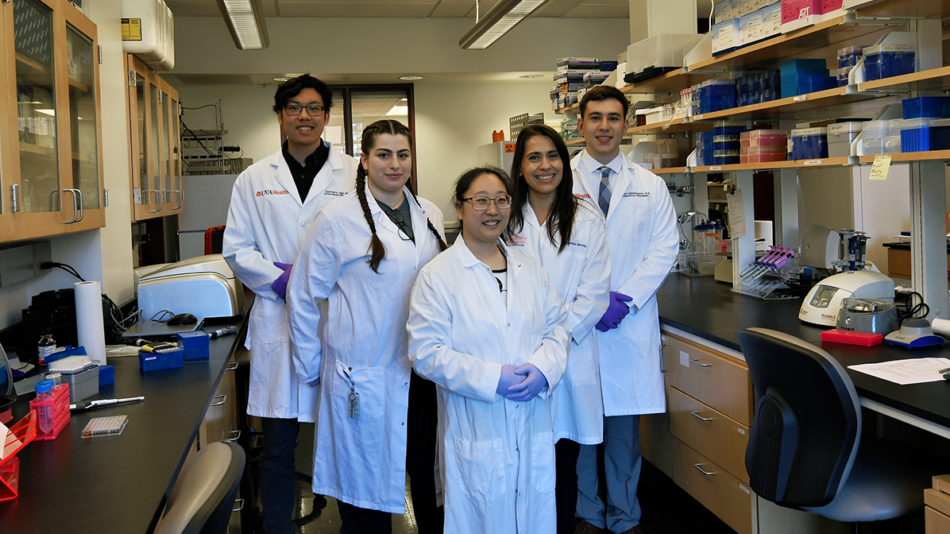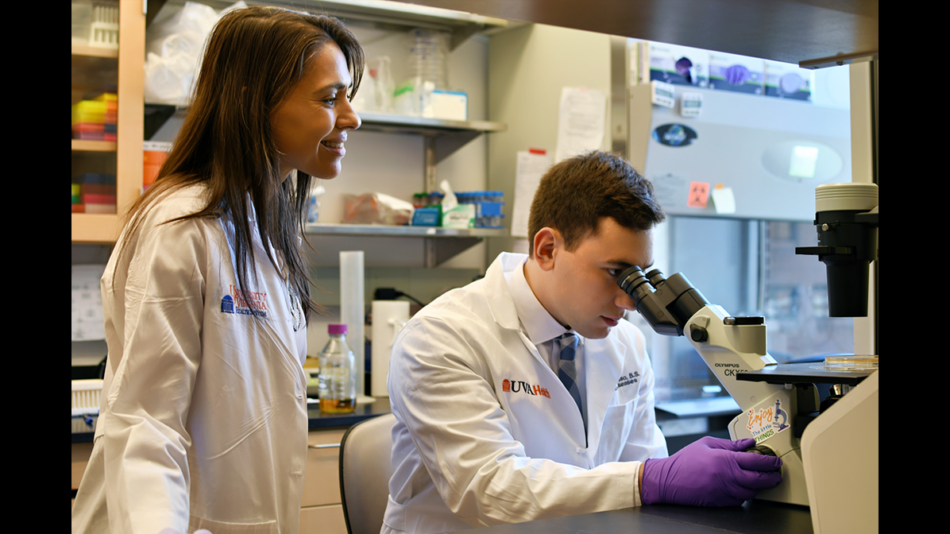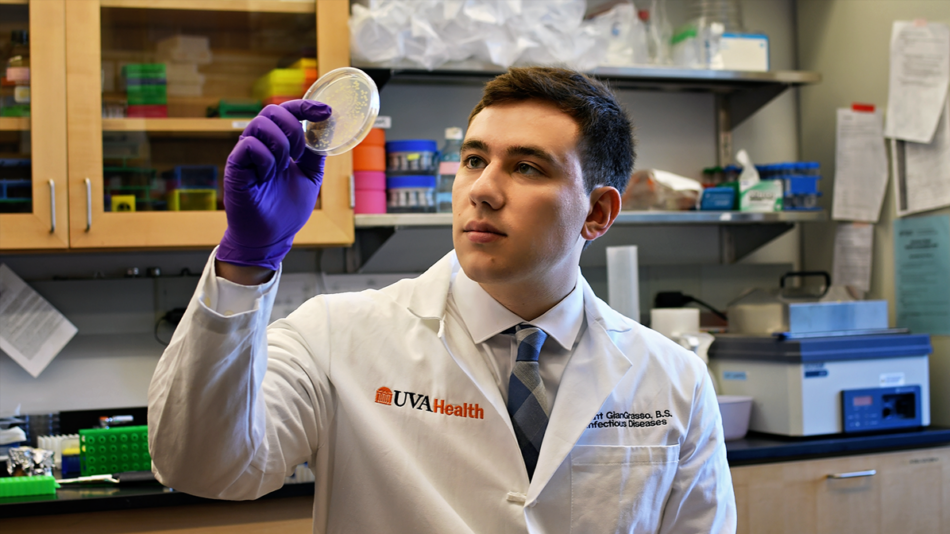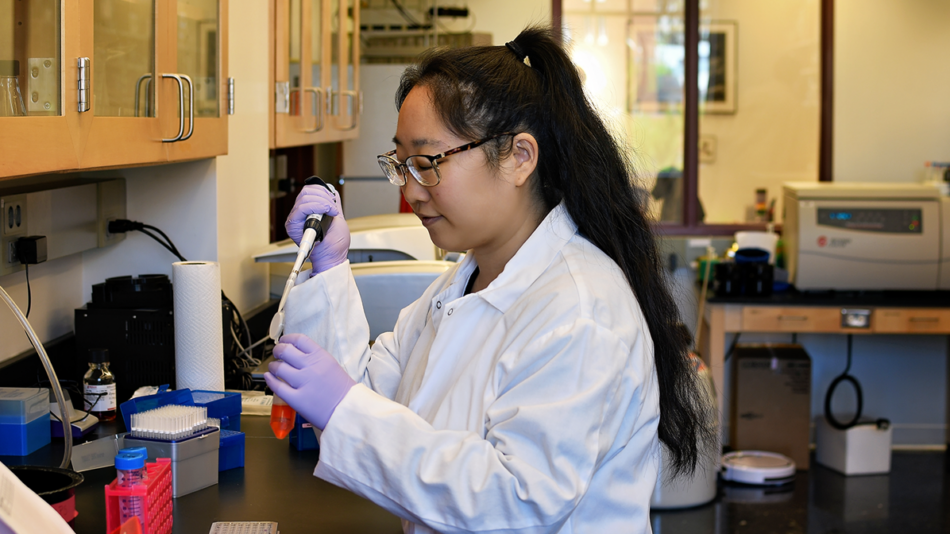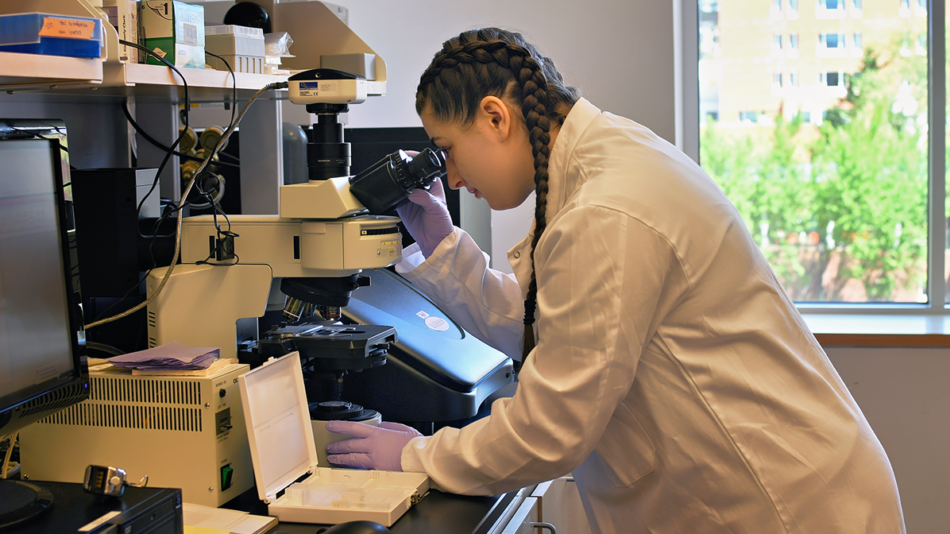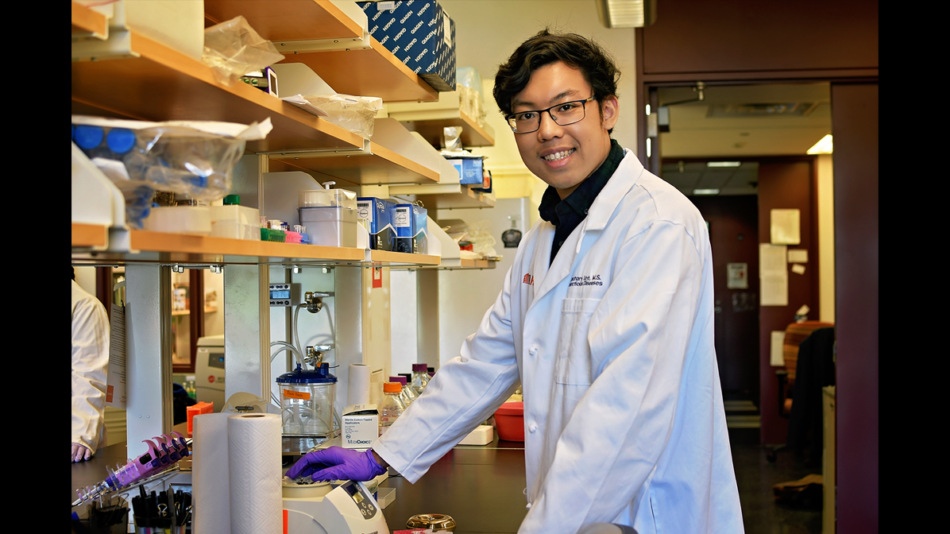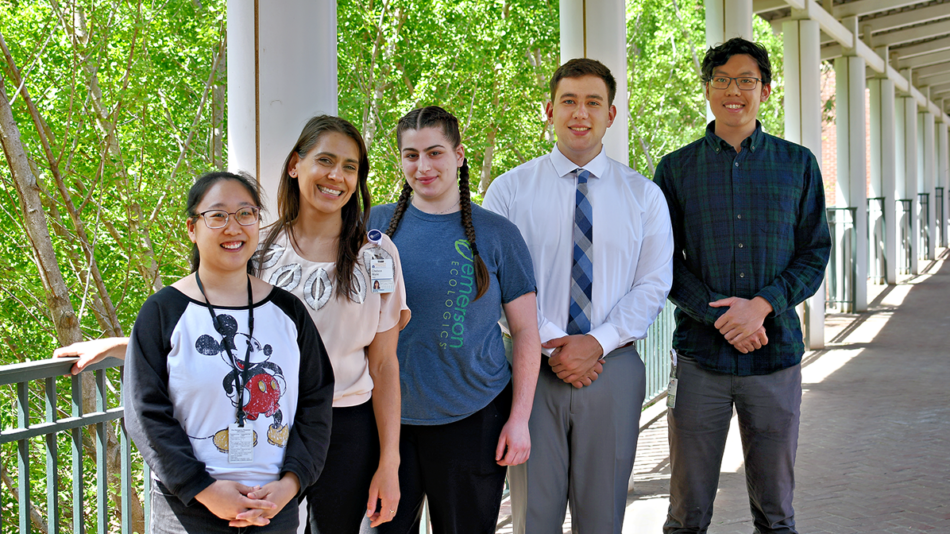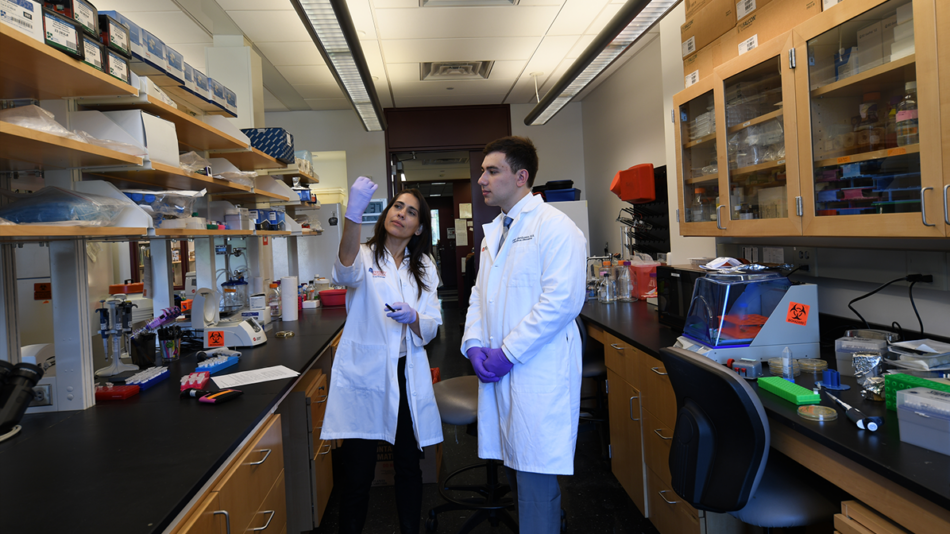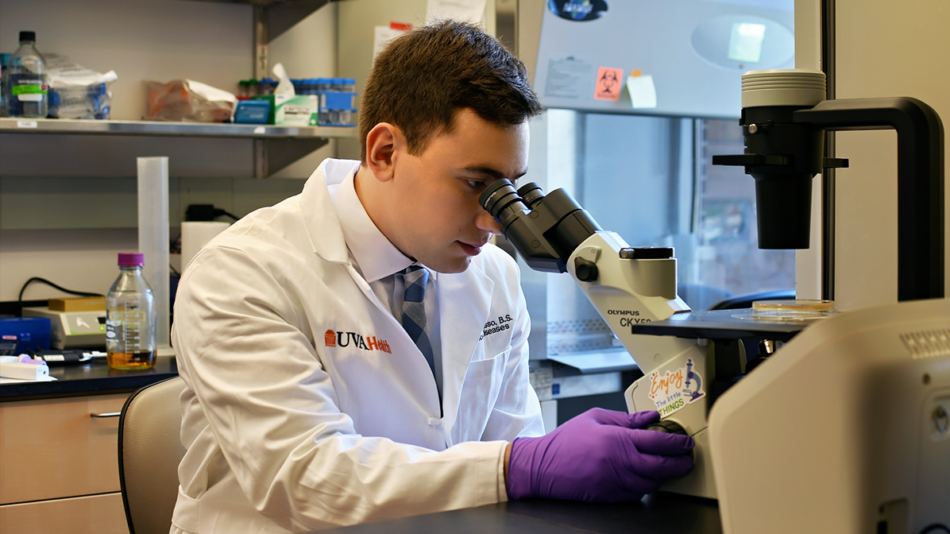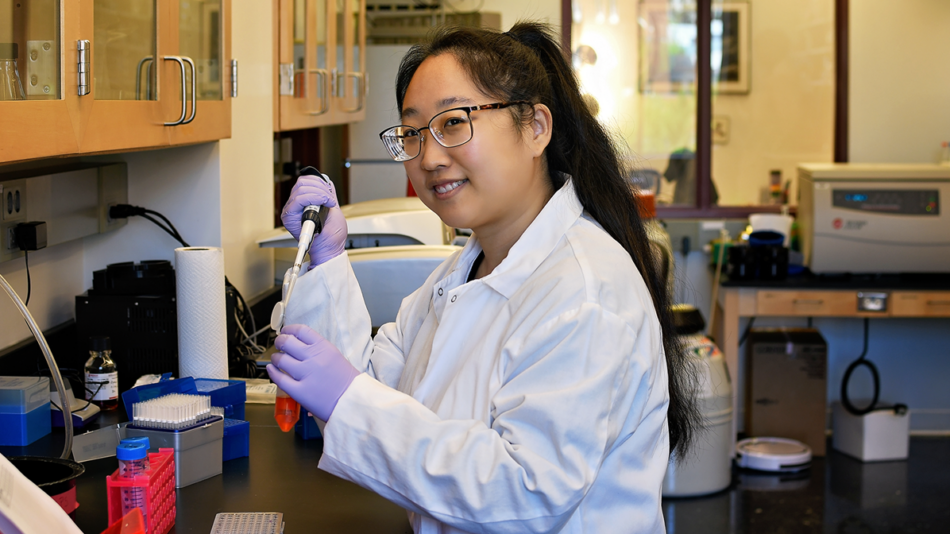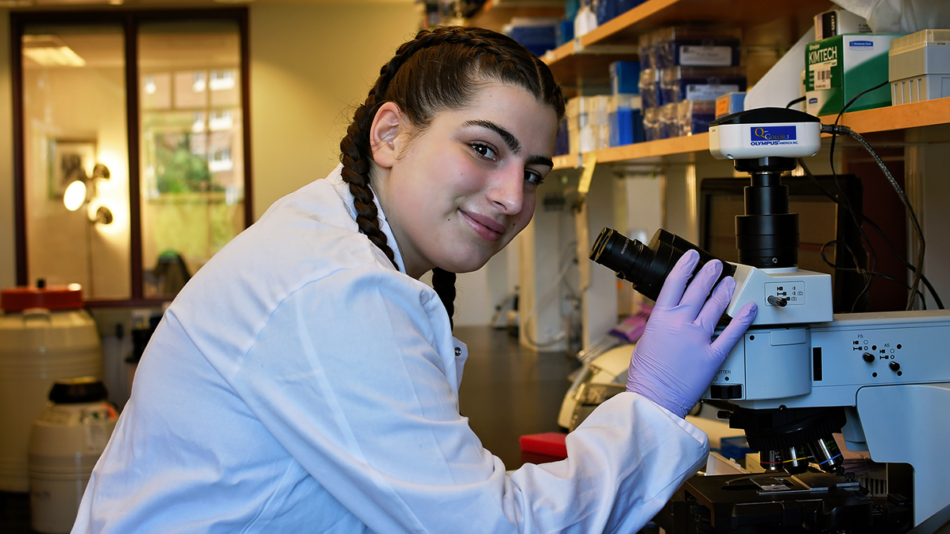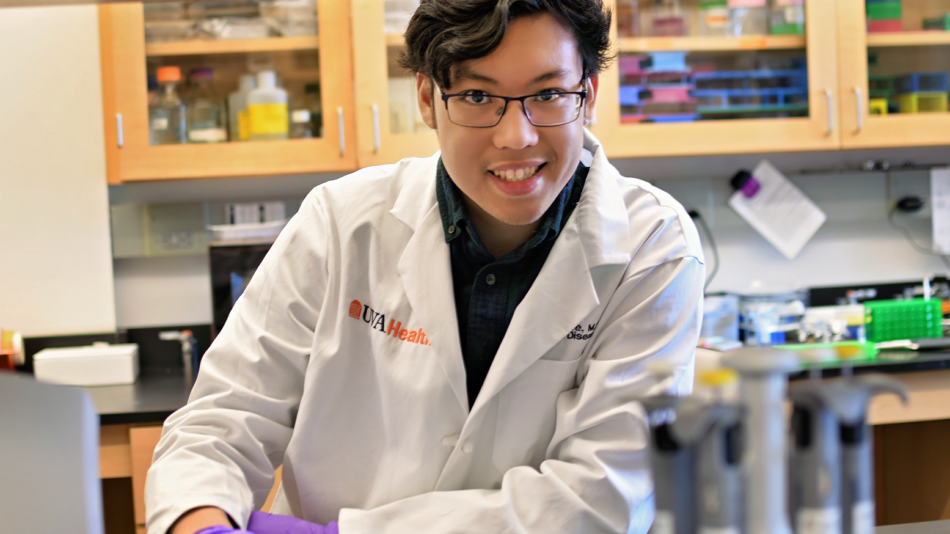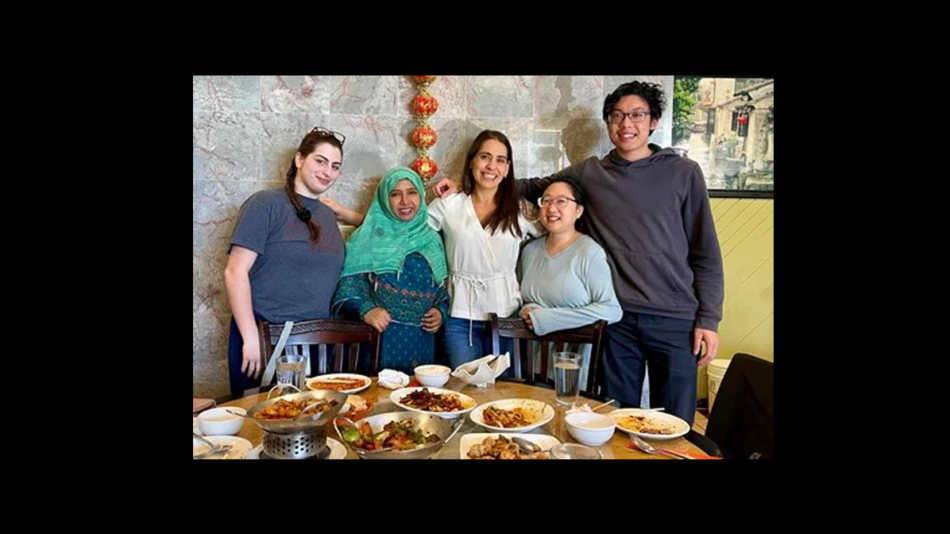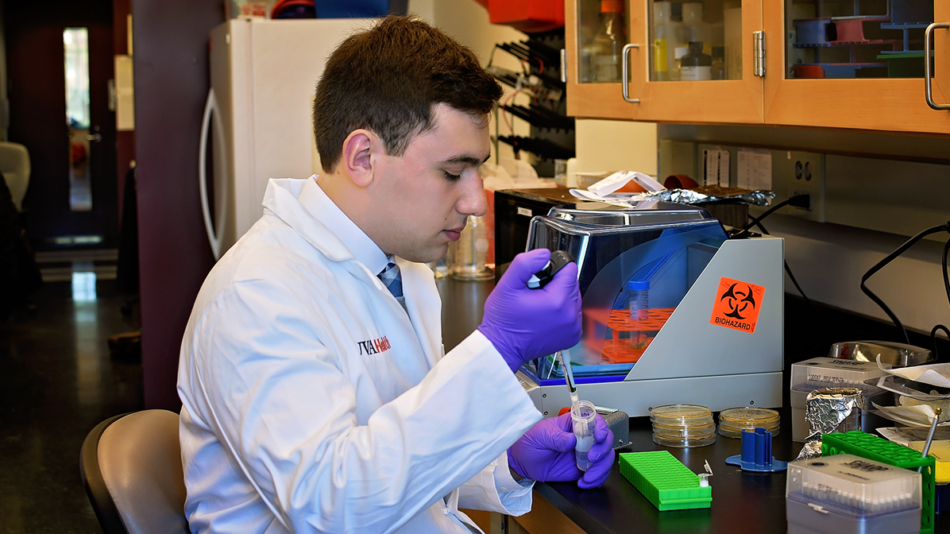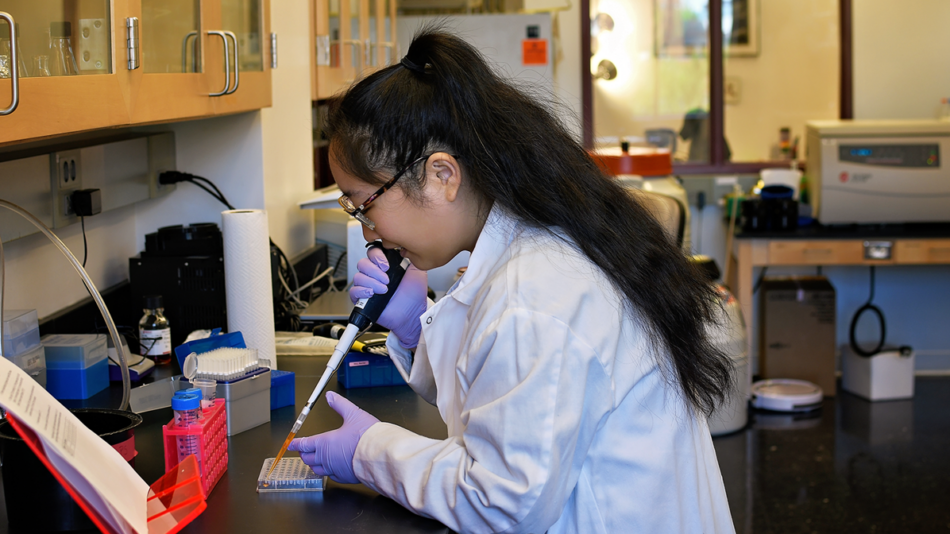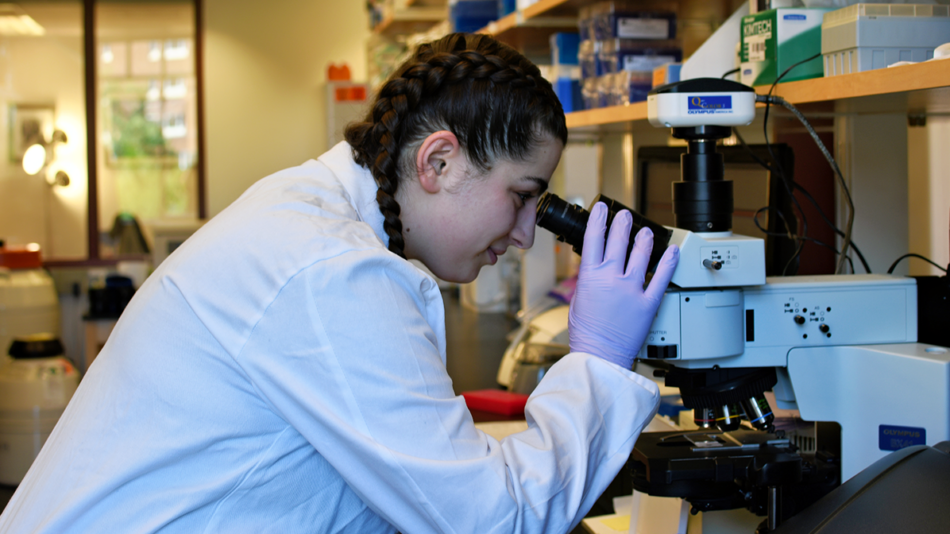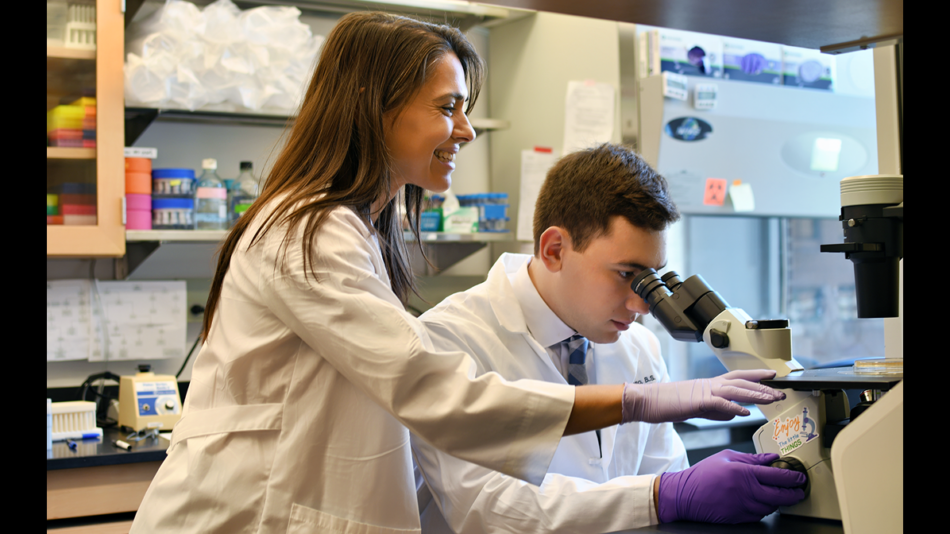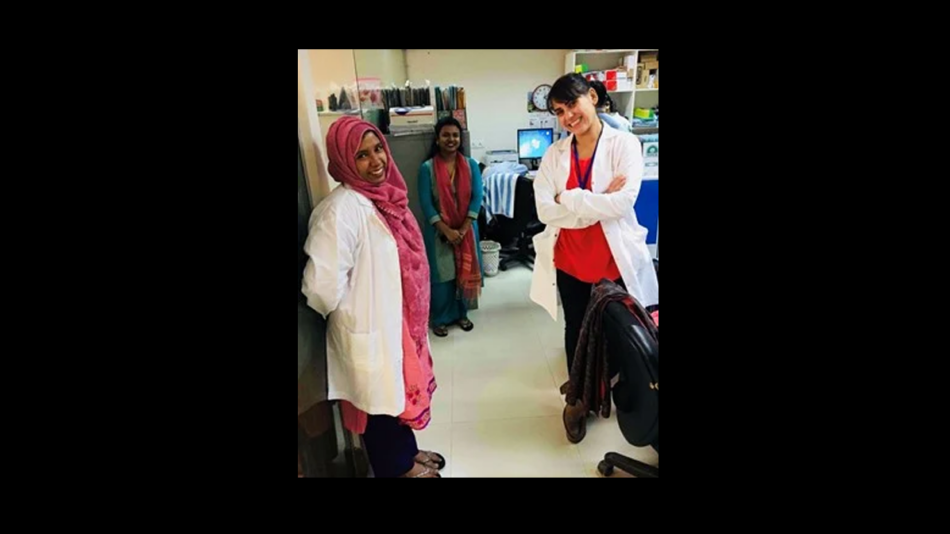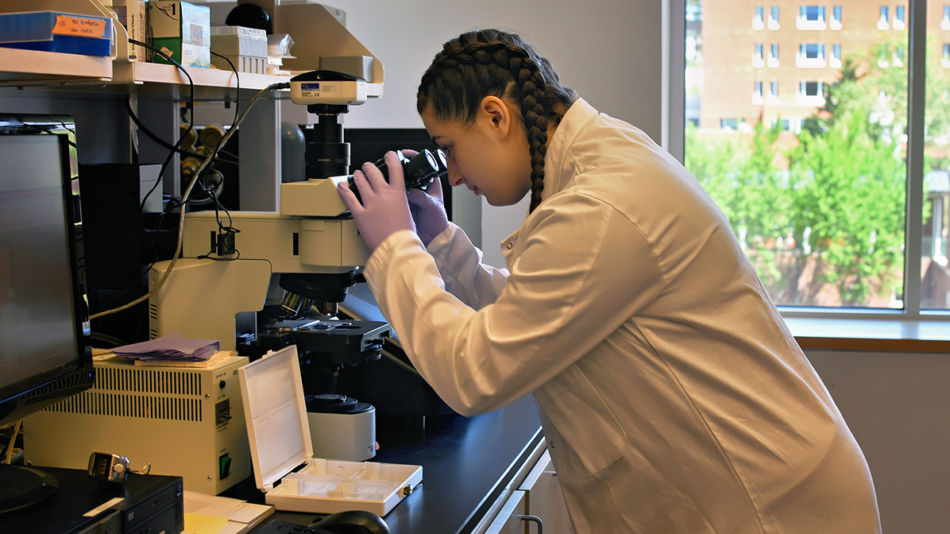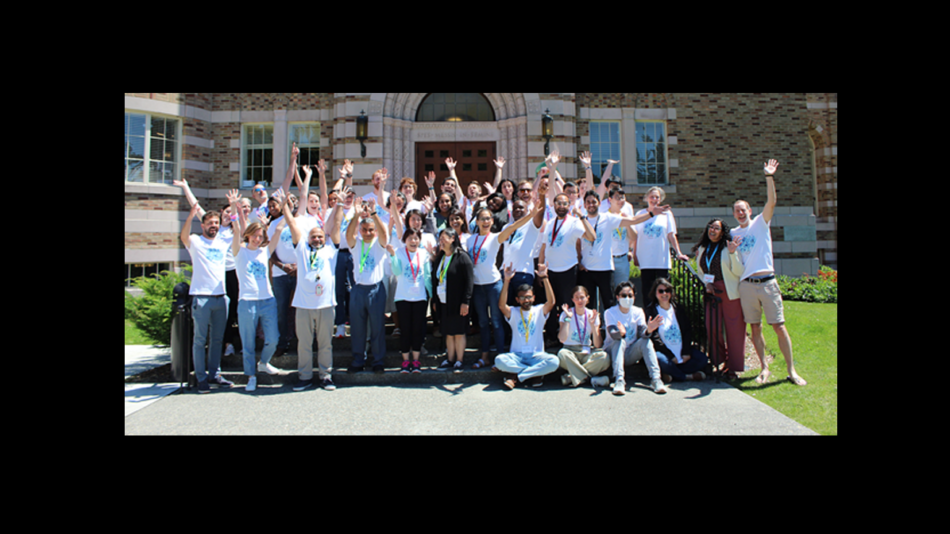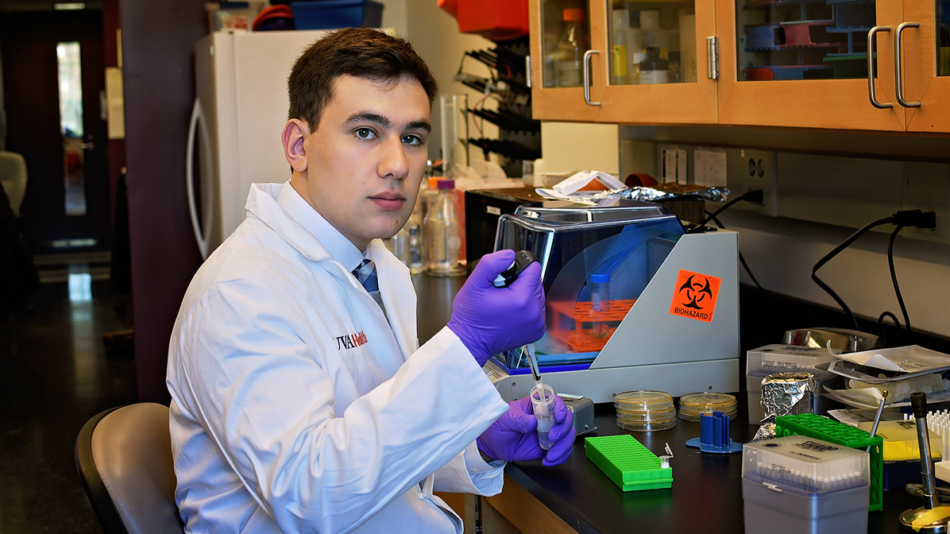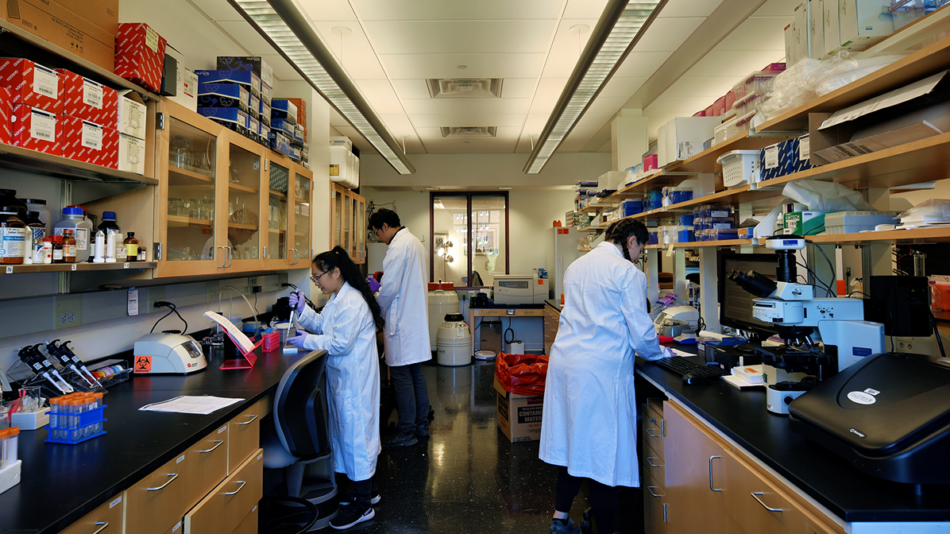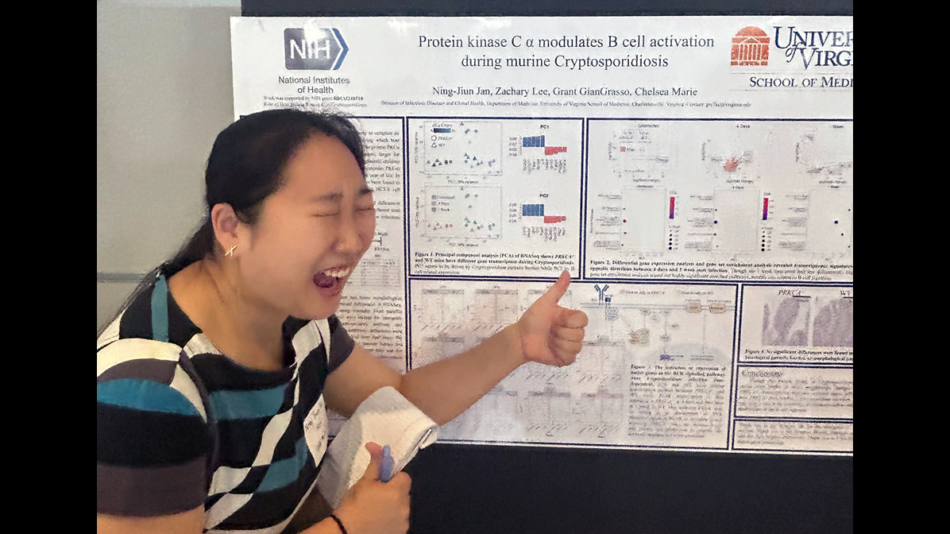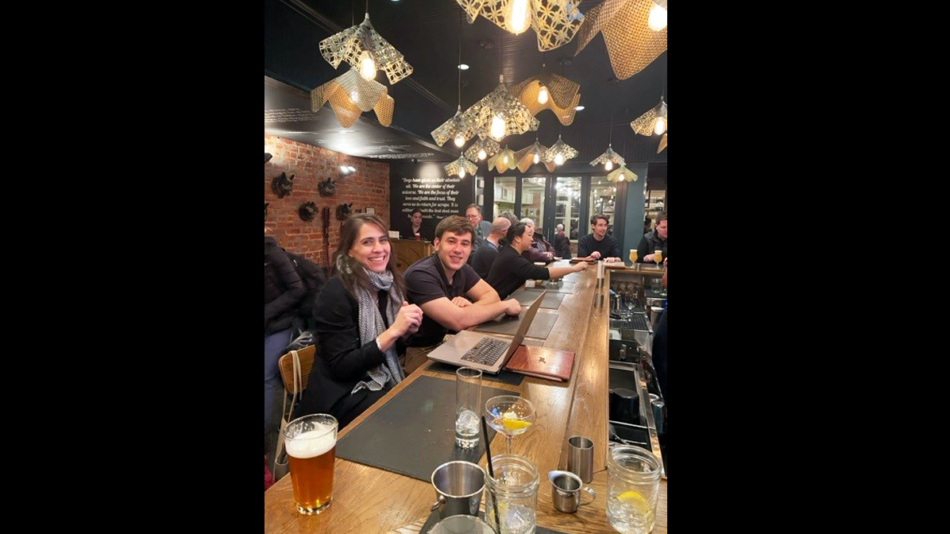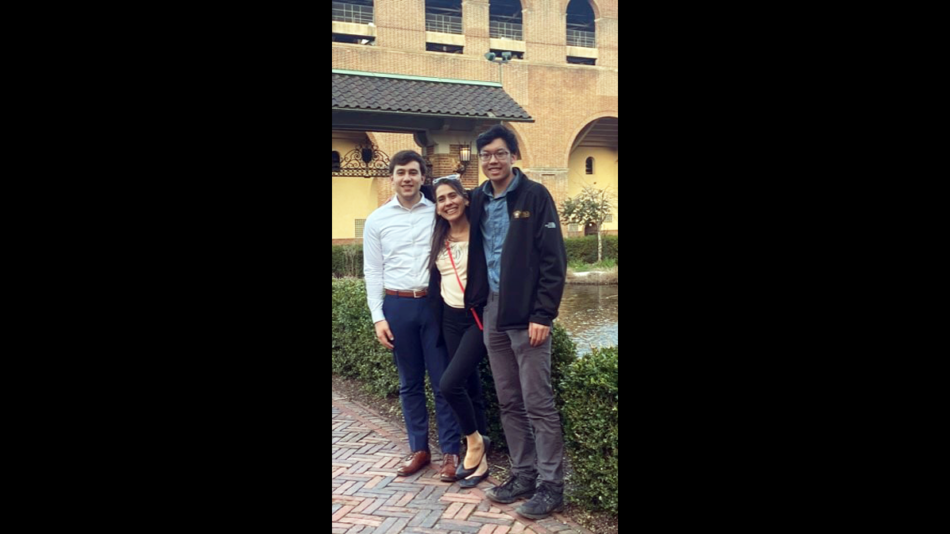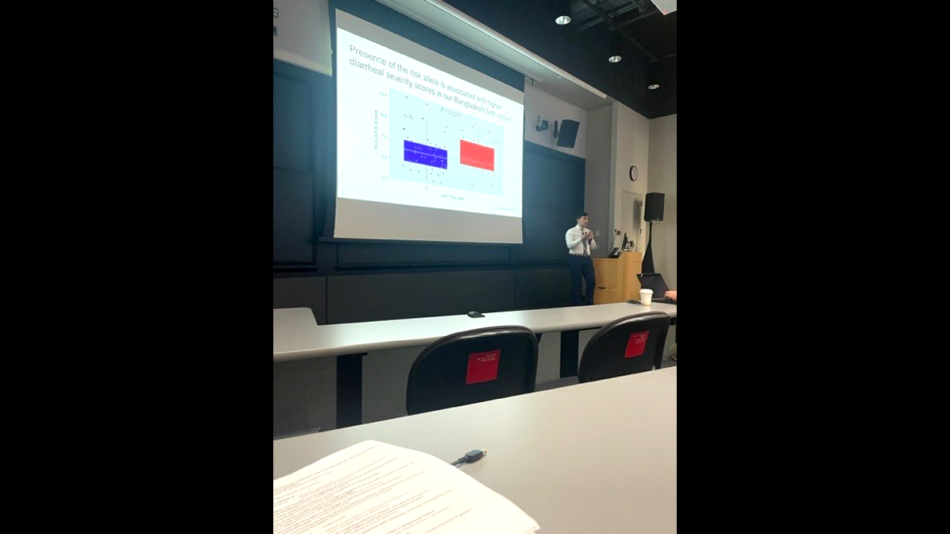Chelsea Marie Braun, PhD
Primary Appointment
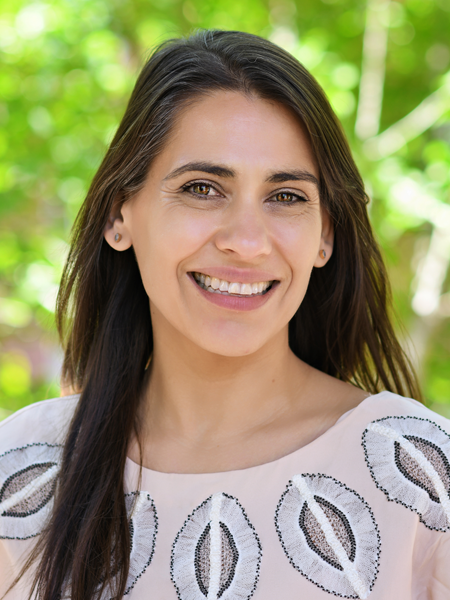 Medicine, Infectious Disease and International Health
Medicine, Infectious Disease and International Health
Contact
UVA Division of Infectious Disease & International Health
P.O. Box 801340
Charlottesville, VA 22908
Telephone: 434-924-6511
Email: csm8r@virginia.edu
Education and Training
- B.S. magna cum laude, Microbiology, Oregon State University
- Emerging Infectious Disease Fellowship, Centers for Disease Control and Prevention, Atlanta, Georgia
- Ph.D. Pathobiology, University of Washington, Seattle, Washington
- Postdoctoral Fellowship, Infectious Disease and International Health, University of Virginia School of Medicine
Lab Research
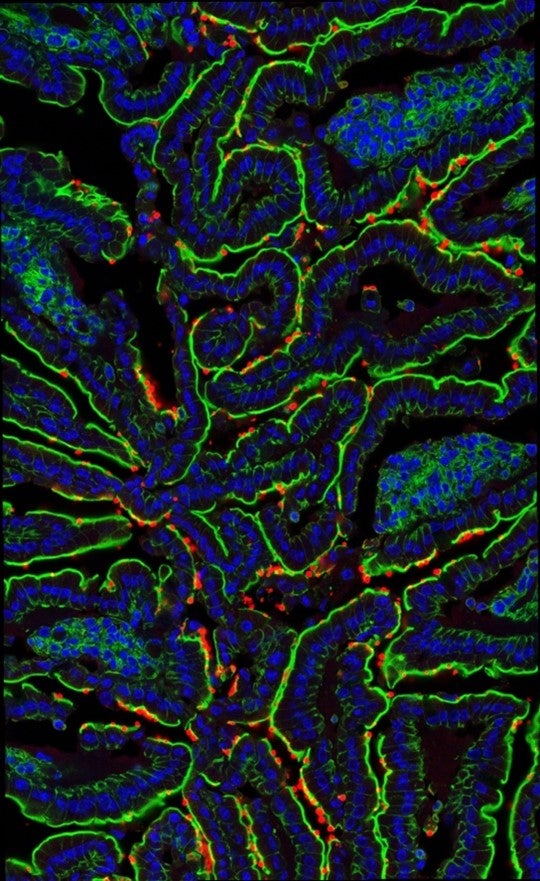 Research Areas:
Research Areas:
Parasitology, immunology, transcriptomics, genetic susceptibility to infectious disease
Research Summary:
The Marie lab is focused on understanding host-pathogen interactions of intestinal pathogens. We focus on Cryptosporidium, a critically important pediatric diarrheal pathogen. In 2016, Cryptosporidium was the fifth leading diarrheal pathogen in children under five years, causing ~48,000 deaths and the loss of > 4.2 million disability-adjusted life-years (DALYs). Cryptosporidium is associated with growth faltering in children, making this a key pathogen for intervention.
The Marie lab combines clinical investigation in Dhaka, Bangladesh, with translational laboratory approaches to investigate the range of pathology and immune response to Cryptosporidium infection. We are particularly interested in understanding the immunological mechanisms that promote parasite clearance and protect from repeat infections in early life. Our laboratory investigates the genetic differences that may underpin the human immune response to Cryptosporidium infection. Our work aims to inform the development of host-targeted therapeutics and vaccines to promote an effective immune response.
- Role of PKCα in Cryptosporidiosis (NIAID R01)
- Genotoxicity of Shigella (ID seed grant)
- Noor, Z., Hasam, M., Gazi, A., Hossaini, F., Haque, N.M.S, Palit, P., Fahim, S.M., Das, S, Mahfuz, M., Marie, C., Petri, W.A., Haque, R., Ahmed, T*. Identifying the phenotypic distribution and functional responses of peripheral blood mononuclear cells. Scandanavian Journal of Immunology.
- Munday,R., Haque,R., Jan, NJ., Wojcik,G., Marie,C., Duchen,D., Mentzer,A., Nayak,U., Korpe,P., Kirkpatrick,B., Petri,WA Jr., Duggal,P.* Genome-wide association study of Campylobacter-positive diarrhea identifies genes involved in toxin processing and inflammatory response. Mbio, 2022 Apr 14;e0055622. PMID: 35420468.
- McCowin, SE., Petri, WA. Jr, Marie, C*. Protein Kinase C-α is a gatekeeper of Cryptosporidium sporozoite adherence and invasion. Infect Immun. 2022 Jan 31:iai0067921. PMID: 35099276.
- Jan, N., Hays, RA., Oakland, DN., Kumar,P., Ramakrishnan,G., Behm, BW., Petri, WA Jr., Marie, C*. Fecal microbiota transplantation increases colonic IL-25 and dampens tissue inflammation in patients with recurrent Clostridioides difficile. mSphere 2021 Oct 27;6(5):e0066921. PMID: 34704776.
- McCowin, S.E., Moreau, G.B., Haque, R, Noble, J.A., McDevitt, S.L., Donowitz, J.R., Alam, M.M., Kirkpatrick, B.D., Petri, W.A., Marie, C*. HLA class I and II associations with common enteric pathogens in the first year of life. EBioMedicine. Apr 2021. PMID: 33910121
- The Marie Lab heads to Philadelphia for the first biannual Cryptosporidium meeting in March 2024.
- Chelsea Marie joins the leadership of iDRIV.
- Grant Gian Grasso receives a Rhodes Scholarship to pursue a doctorate investigating human susceptibility to infectious disease at Oxford.
- Zach Lee MS, joins the Marie Lab.
- Rebecca Pierce’s undergraduate research in the Marie lab was published in Scientific Reports. The relationship between intestinal inflammation and dysbiosis has been a long-standing question in Crohn’s disease. Rebecca used a clinical cohort of children at UVA with controlled Crohn’s disease to show that dysbiosis was present after the resolution of inflammation, indicating that other factors may drive persistent dysbiosis in pediatric Crohn’s disease. This work has important implications for therapies targeting the underlying imbalance in small intestinal microbiota. Pierce, R., Jan, NJ., Kumar, P. et al. Persistent dysbiosis of duodenal microbiota in patients with controlled pediatric Crohn’s disease after resolution of inflammation. Sci Rep 14, 12668 (2024)
- The Marie Lab attended the first Biannual Cryptosporidium meeting at UPENN. It published an associated paper, “The First Cryptosporidium Meeting: A Concerted Effort to Fight Cryptosporidiosis,” in Trends in Parasitology (Dr. Marie co-author) about the ground-breaking work presented.
Research Group Members
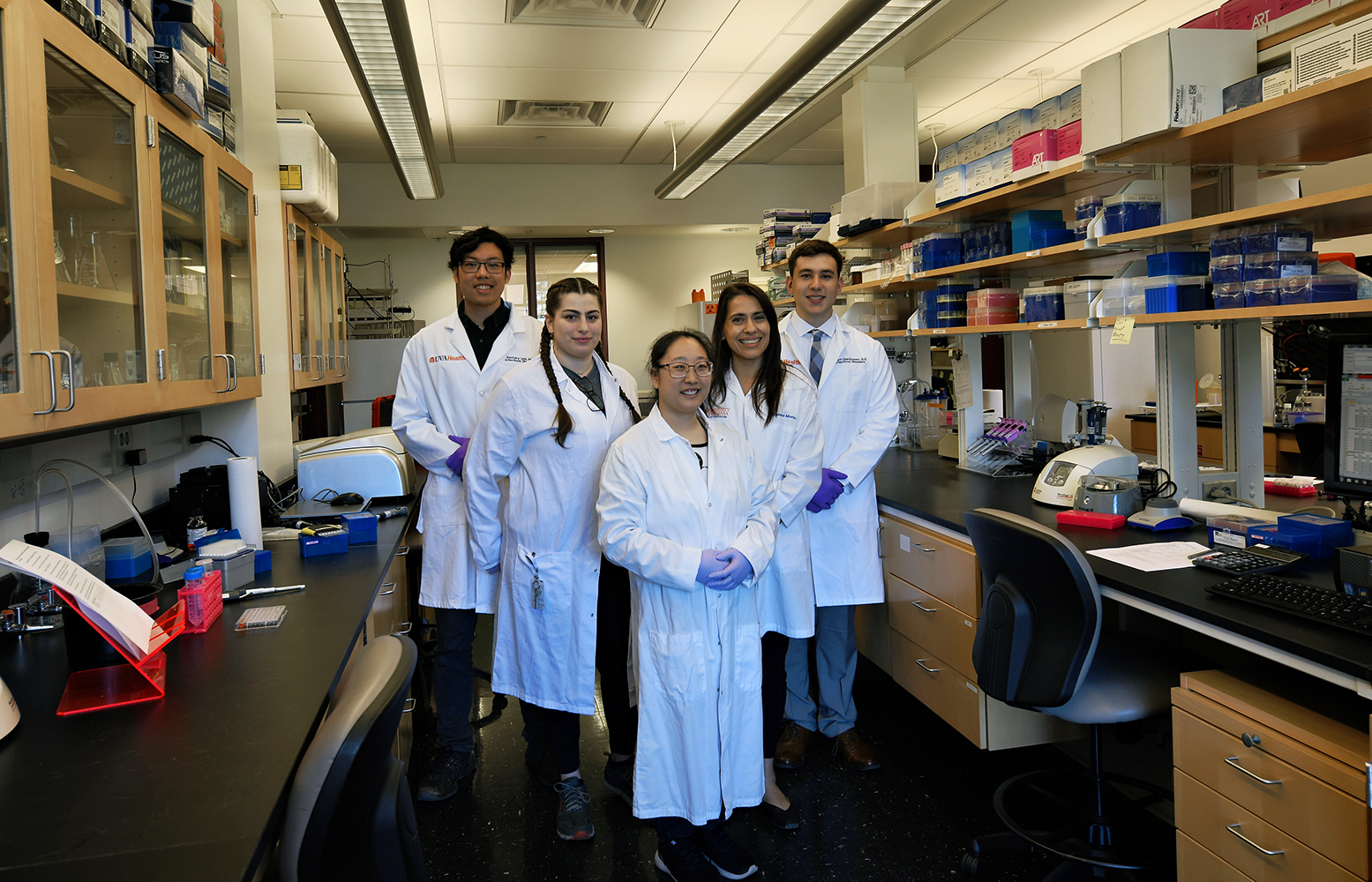
From left: Zach Lee, Skyla Shumway, Ning-Jiun Jan, Chelsea Marie Braun, and Grant GianGrasso
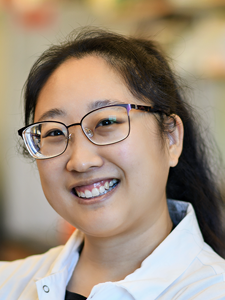 Research Scientist
Research Scientist
Contact: gtv7kc@virginia.edu
Ning-Jiun “Ninj” Jan is a research scientist passionate about problem-solving. Originally pre-med, she fell in love with biology research and analysis during her first undergraduate research experience in the Bjorkman Lab and hasn’t looked back since. In the few years she has been with Professor Marie, she has learned to conduct experiments with mice and analyze data from RNASeq, flow cytometry, 16s, qPCR, and immunofluorescence imaging. What she loves most about the Marie Lab are the endless opportunities to learn new techniques and grow as a scientist.
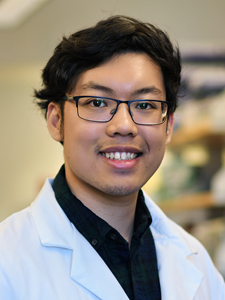 Lab Specialist
Lab Specialist
Contact: fer7fq@virginia.edu
Hailing from the San Francisco Bay Area in California, Zach got his Bachelor’s in Environmental Sciences at Juniata College in Pennsylvania before completing his Master’s in biology and ecology at the University of Rhode Island. His research there focused on entomology and community ecology; specifically, he studied the effects of auditory predation risk cues on caterpillar growth, development, and survival. After graduation, he worked for the USDA animal plant and health inspection service, working on insect biocontrol agents before moving to Charlottesville and UVA. Despite switching away from entomology as a primary career focus, he is still always open to help identify any weird bug pictures that people may have.
Student
Contact: gjg5ax@virginia.edu
Undergraduate Student
Contact: qtq7we@virginia.edu

